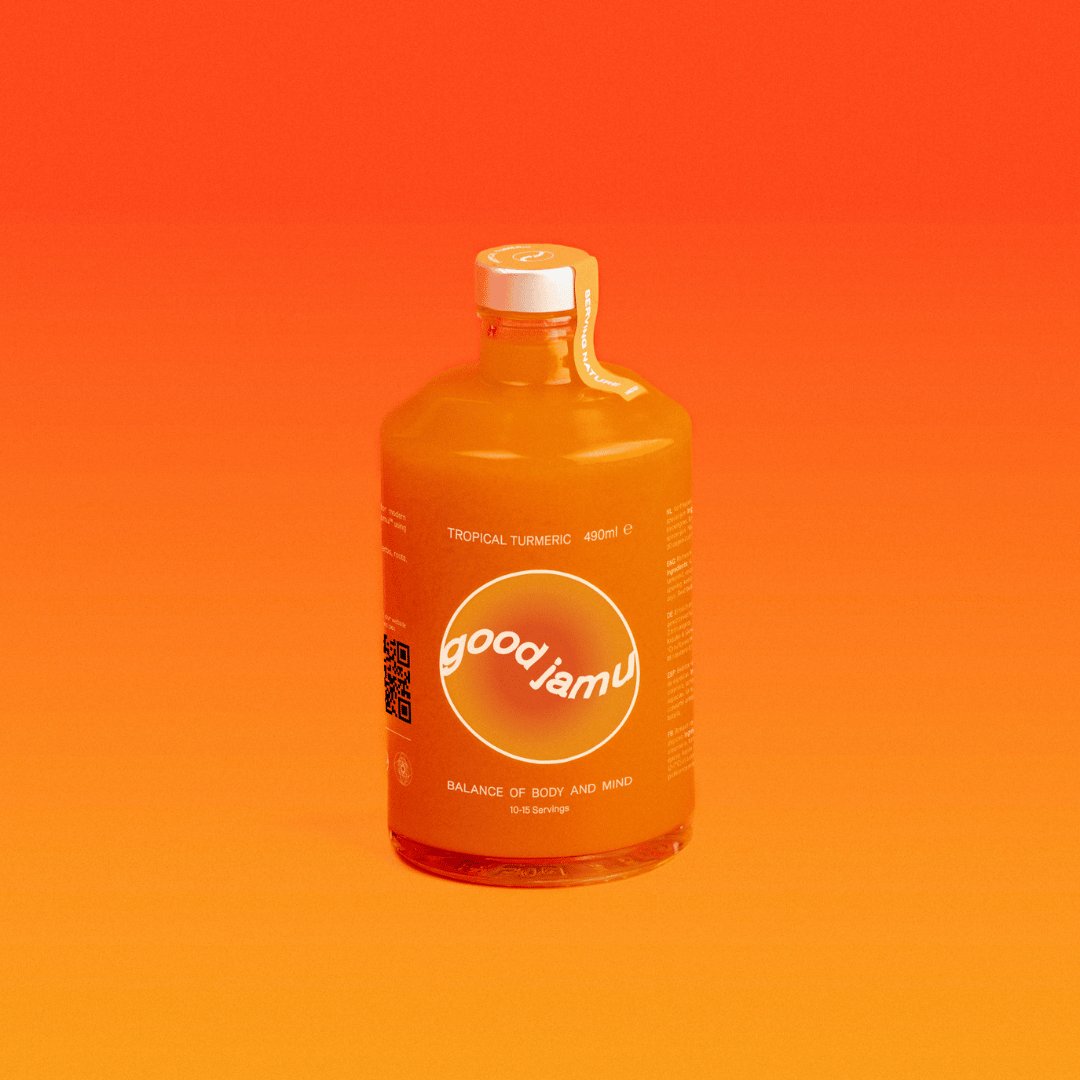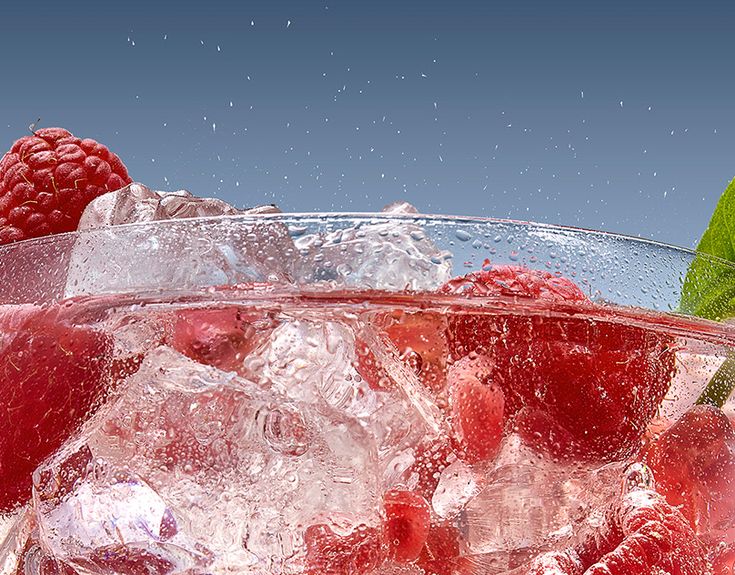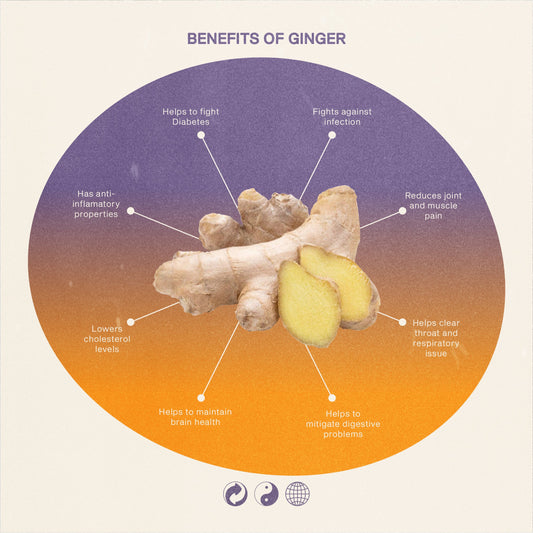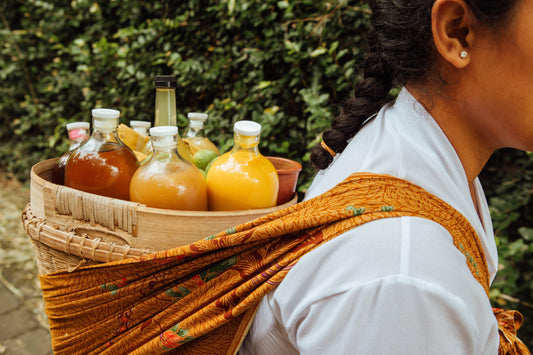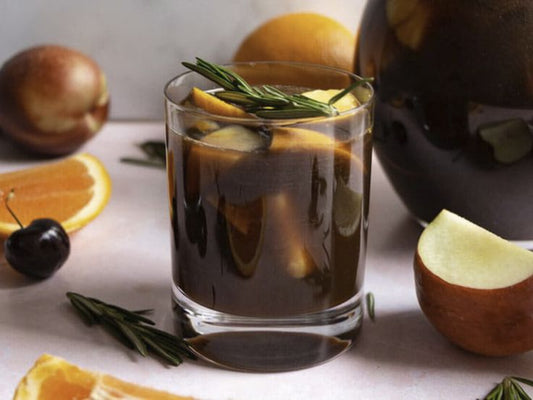Why Is It Important to Find Good Sugar-Free Drink Options?
The Hidden Sugar Problem in Beverages
Most people don't realize how much of their daily sugar intake comes from beverages. A single 12-ounce soda contains about 39 grams of sugar—equivalent to nearly 10 teaspoons. Even seemingly healthy options like fruit juices, sports drinks, and flavored coffees can contain 20-50 grams of sugar per serving.
Common high-sugar culprits:
- Regular sodas: 35-40g sugar per 12oz
- Fruit juices: 20-35g sugar per 8oz
- Sports drinks: 15-25g sugar per 8oz
- Flavored coffee drinks: 25-50g sugar per serving
- Energy drinks: 25-40g sugar per can
- Sweet tea and flavored waters: 15-30g sugar per serving
What Happens When You Reduce Beverage Sugar?
Immediate benefits (1-2 weeks):
- Reduced afternoon energy crashes and sugar cravings
- Better appetite regulation and less snacking between meals
- Improved dental health and reduced tooth sensitivity
- More stable mood and energy levels throughout the day
Medium-term improvements (1-3 months):
- Easier weight management due to eliminated liquid calories
- Better sleep quality and reduced nighttime wake-ups
- Improved skin clarity and reduced inflammation
- Enhanced taste sensitivity allowing you to enjoy subtle flavors
Long-term health benefits (6+ months):
- Reduced risk of type 2 diabetes and metabolic syndrome
- Lower inflammation markers and improved heart health
- Better gut microbiome balance
- Decreased risk of dental decay and gum disease
What Are the Best Naturally Sugar-Free Beverage Options?
Sparkling Waters and Seltzers
Sparkling water provides the satisfaction of bubbles and can feel more indulgent than still water while remaining completely sugar-free.
Plain sparkling water brands:
- LaCroix: Natural flavoring with no calories, sugars, or artificial ingredients
- Bubly: Fruit-flavored sparkling water with natural flavors
- Spindrift: Real fruit juice for flavor (small amount) but much lower sugar than traditional drinks
- San Pellegrino: Classic Italian sparkling water with natural minerals
DIY sparkling water enhancement:
- Add fresh lemon, lime, or orange slices
- Muddle fresh herbs like mint, basil, or rosemary
- Drop in frozen berries for subtle flavor and visual appeal
- Add cucumber ribbons for a spa-like refreshing taste
- Try a splash of sugar-free fruit extract or essence
Herbal and Unsweetened Teas
Tea provides endless variety, antioxidants, and natural flavors without any added sugars. Hot or iced, teas can satisfy different moods and cravings throughout the day.
Caffeine-free herbal options:
- Chamomile: Calming and naturally sweet, perfect for evenings
- Peppermint: Refreshing and aids digestion, great iced or hot
- Rooibos: Naturally sweet and rich, excellent with a splash of unsweetened almond milk
- Hibiscus: Tart and fruity, beautiful red color, high in antioxidants
- Ginger: Warming and anti-inflammatory, great for digestion
Caffeinated options:
- Green tea: Light, grassy flavor with metabolism-boosting properties
- White tea: Delicate and subtle, lowest caffeine content among true teas
- Oolong: Complex flavor between green and black tea
- Black tea varieties: Earl Grey, English Breakfast, Ceylon for robust flavors
Bone Broth and Savory Options
Savory drinks can satisfy cravings that sweet alternatives might not address, especially for those who associate beverages with umami or salt rather than sweetness.
Bone broth benefits:
- High in protein, collagen, and minerals
- Satisfying and can curb appetite between meals
- Warm and comforting, especially during cold weather
- Available in convenient shelf-stable and frozen options
Other savory alternatives:
- Vegetable broth: Lower calorie option with vegetables and herbs
- Miso soup: Probiotic benefits and satisfying umami flavor
- Tomato juice: Choose low-sodium versions, rich in lycopene
- Pickle juice: Electrolyte replacement, though high in sodium
Kombucha and Fermented Beverages
Kombucha provides probiotics and complex flavors while typically containing much less sugar than traditional sweet drinks.
Kombucha considerations:
- Choose brands with under 8g sugar per serving
- Look for "raw" or "unpasteurized" for maximum probiotic benefits
- Popular low-sugar brands: Health-Ade, GT's Cocobiotic, Brew Dr.
- Make your own to control sugar content and fermentation time
Other fermented options:
- Water kefir: Lighter and more subtly flavored than kombucha
- Kvass: Traditional fermented beet or bread beverage
- Jun: Honey-based fermentation, often called "champagne of kombucha"
Which Sugar Substitutes Are Best in Beverages?
Natural Zero-Calorie Sweeteners
Stevia:
- Derived from stevia leaf plant
- 200-400 times sweeter than sugar, so use sparingly
- Can have a slightly bitter aftertaste; try different brands
- Works well in cold beverages and herbal teas
- Liquid stevia often mixes better than powder
Monk Fruit Sweetener:
- Extracted from monk fruit, native to Southern China
- 100-250 times sweeter than sugar
- No bitter aftertaste for most people
- Heat stable, good for hot beverages
- Often blended with erythritol for better measuring ratios
What to Avoid in Sugar-Free Drinks
Artificial sweeteners with potential concerns:
- Aspartame: Some people experience headaches or sensitivity
- Sucralose: May affect gut bacteria and glucose metabolism
- Acesulfame potassium: Often combined with other artificial sweeteners
- Saccharin: Oldest artificial sweetener, can have metallic aftertaste
Hidden sugar names to watch for:
- Agave nectar, rice syrup, cane juice, fruit juice concentrate
- Maltodextrin, dextrose, glucose, fructose
- Honey, maple syrup, coconut sugar (still sugar despite being "natural)
What Are the Health Benefits of Specific Sugar-Free Drink Categories?
Herbal Teas and Their Unique Benefits
Digestive support:
- Ginger tea: Reduces nausea and aids digestion
- Peppermint: Soothes stomach upset and improves focus
- Fennel: Reduces bloating and supports digestive health
- Chamomile: Calms digestive system and promotes relaxation
Antioxidant powerhouses:
- Green tea: EGCG for metabolism and brain health
- White tea: Highest antioxidant content, anti-aging properties
- Rooibos: Caffeine-free with minerals and antioxidants
- Hibiscus: Vitamin C and compounds that may lower blood pressure
Fermented Beverages and Gut Health
Probiotic benefits:
- Support healthy gut bacteria balance
- May improve digestion and nutrient absorption
- Potential immune system support
- Could help with mood regulation through gut-brain connection
Choosing quality fermented drinks:
- Look for "live and active cultures" on labels
- Refrigerated options often have more beneficial bacteria
- Avoid pasteurized versions which kill beneficial microorganisms
- Start with small amounts to allow your system to adjust
Frequently Asked Questions About Sugar-Free Beverages
Will artificial sweeteners make me crave more sugar?
Research is mixed, but many people find that natural sweeteners like stevia and monk fruit don't trigger sugar cravings as much as artificial alternatives. The key is gradual reduction and finding naturally satisfying alternatives.
Are sugar-free drinks safe during pregnancy?
Consult your healthcare provider, but generally herbal teas (avoiding certain herbs), sparkling water, and small amounts of natural sweeteners are considered safe. Avoid high amounts of artificial sweeteners and excessive caffeine.
Can I drink too much of sugar-free beverages?
While better than sugary drinks, some sugar alcohols can cause digestive upset in large quantities. Aim for variety and moderation, ensuring you still drink plenty of plain water throughout the day.
How long does it take to stop craving sugary drinks?
Most people notice reduced cravings within 2-3 weeks of cutting sugar significantly. Your taste buds will adapt, and naturally sweet foods and drinks will taste much sweeter than before.
What's the best sugar-free drink for athletes?
Electrolyte waters without added sugars, coconut water (in moderation), and homemade sports drinks using natural sweeteners and sea salt work well. Consider timing carbohydrates around workouts rather than eliminating them entirely.
Are diet sodas okay occasionally?
Occasional diet sodas aren't likely to cause problems for most people, but they shouldn't be your primary beverage. Focus on drinks that provide additional benefits like hydration, antioxidants, or probiotics.
